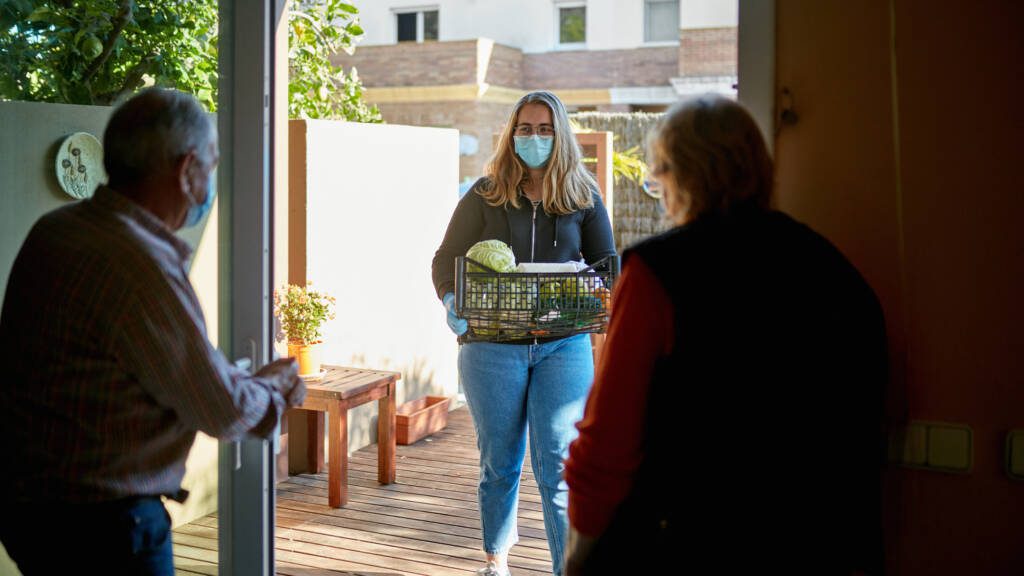So many aspects of life have been changed due to the impacts of COVID-19—and creating a standout résumé for your college application is certainly one of them.
Now that world has opened back up, you may be wondering how to account for the two-year period where shutdowns and hybrid schedules interrupted your expected routine of sports practices, theater rehearsals, and other in-person and group extracurricular activities.
Many extracurricular activities were canceled in the spring of 2020. Even now, this may leave a one- or two-year gap in your college résumé. The good news is you’re not alone. College admissions officers understand how the pandemic is continuing to influence extracurricular activities. Kate Sonnenberg, founder of KS College Success, reiterates that colleges will not hold canceled activities against a student. In fact, admissions officers at many colleges released a statement telling students not to worry about missed activities and to focus on self-care.
As extracurriculars resume, you may be adding them back to your schedule, or you may have found a new passion that’s not offered by your school. Your résumé will likely look different than an applicant from five years ago, and colleges know that. Here, experts share tips on how to spotlight how you’ve spent your high school career, even during these uncommon times.
The more creative you can show yourself to be, the better the impression for the university.
Bring Former Activities Home
If an extracurricular is no longer offered or it doesn’t work with your schedule, see how you might be able to replicate the activity outside of school. Brady Norvall, founder and chief education officer of FindaBetterU, offers this example: “Choir might not be an option, but continuing to sing or study music on one’s own is still possible. The more creative you can show yourself to be, the better the impression for the university.”
Sofia Zapiola, a college application coach, also suggests demonstrating your passion for an activity, even if you can’t fully participate. If you were planning to highlight a sport on your résumé, for instance, create an individual fitness plan with measurable goals. It may not be the same as winning the state championship, but it does show dedication and initiative.
Count Caretaking
“Colleges are in part looking for a student [who] will take an active role in their community and is working toward becoming a global citizen,” Zapiola says. Responsibilities like a part-time job or pitching in with family needs can demonstrate your global citizen aptitude just as well as participating in Model UN. Have you helped care for a grandparent or younger sibling during the last few years? Have you stepped up to help your parents with household maintenance or contribute to expenses by taking on a part-time job? Don’t leave those major contributions off your résumé.
Think Depth Over Breadth
Don’t have 20 activities from the last four years? That’s fine. Many admissions counselors look for depth—how much time you devote to a few activities—over breadth. In other words, don’t collect clubs just because they’re accepting memberships. Rather, look at what you’ve done over the past few years and see if there’s a common thread. Maybe you’re passionate about sports–can you go deeper into that interest by volunteering to help coach younger kids?
You can also speak with your high school counselor if you have questions about what to keep or leave off your résumé. For example, if you only attended a few yearbook committee meetings freshman year, it may make sense to leave that off your résumé in favor of spotlighting activities that you committed to over a longer period of time.
There is a lot that students can accomplish with their phones, ingenuity and passion.
Create a Résumé Template
During the college application process, your college counselor may have a template to follow for your college résumé. It can also be helpful to look at college application résumé examples from applicants from the past years—especially ones who may have had their college résumés interrupted by the COVID-19 pandemic. But before you put your activities into a template, write a rough draft of everything you did from freshman year onward. Include volunteer activities, awards, and extracurricular events. At this brainstorming phase, it’s okay to put smaller things on your list. As you look through your larger list for patterns and thoroughlines, you can begin narrowing it down.
Master New Skills
Depending on your situation, you may have additional free time on your hands. Using that time for something constructive, like honing a new skill, can be a great indication to admissions officers that you’re proactive and excited to learn.
“I’ve had students use the time to meet more personal goals, such as reading for enjoyment again, practicing yoga and mastering ‘Stairway to Heaven’ by Led Zeppelin on the guitar,” says Lindsey Wander, founder and CEO of WorldWise Tutoring.
If you know what you want to study in college, Zapiola notes that this is a good opportunity to learn relevant skills. “Research what software is most commonly used in your field,” she says. “Being familiar with these programs will give you a leg up and show admissions officers that you are serious about your future.”
Go Digital
The COVID-19 pandemic opened up virtual opportunities that may not previously have been available. Even as more events are meeting in-person, virtual events provide flexibility and opportunities. “There is a lot that students can accomplish with their phones, ingenuity, and passion,” Norvall says. Need some ideas? Norvall suggests starting a blog if you like to write, launching a film club if you’re a film buff, or creating instructional videos if you’re an artist.
If you were hoping to put an after-school or summer job on your résumé but that’s no longer possible, think about paid remote positions instead. History buff? Zapiola suggests “transcribing and indexing historical documents for genealogy websites.” Think about what you’re interested in and how those interests could match with an activity or service within the community. You could also offer remote tutoring sessions for younger students who need extra help.
Help Your Community
Addressing pain points within your community has always been a meaningful way to spend time. “Many people need help in a variety of ways, and most students can probably check the pulse of their neighborhood or community, see what people need and try to figure out a way to provide that,” Norvall says. For example, many people need groceries delivered, meals dropped off, and childcare. “Focus on the community closest to you and start there,” Norvall says.
Remember, you’ve spent the majority of your high school career living through extraordinary times, and there’s no right or wrong way to apply to college. That said, Norvall emphasizes the value of being resourceful and taking whatever steps you can. “Just keep being creative and challenging yourself every day.”




